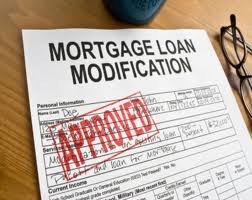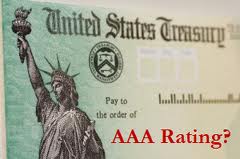 Mortgage modifications are often determined by whether the owner (not servicer) is either a participant in HAMP or a recipient of TARP bailout funds.
Mortgage modifications are often determined by whether the owner (not servicer) is either a participant in HAMP or a recipient of TARP bailout funds.
Here’s how to check on your lenders:
First, use our Resource page on our website to look up who likely owns your loan by doing a Fannie, Freddie or MERS lookup search.
Second, see if the owner of your loan is a HAMP or other governmental program participant.
Third, see if the owner of your loan was a recipient of TARP funds in the 2008 bailout.
If your loan passes the above tests, your lender is required to run you through a HAMP analysis (even if they would prefer a short sale). You can qualify for a HAMP modification whether or not you file bankruptcy, although you might find the success rates are higher in a bankruptcy. The Tampa Division bankruptcy courts just established a formal mediation program in October 2011 for homeowners who have experienced difficulty in obtaining mortgage modifications.
Continue reading →
 Reboot Your Life: Tampa Student Loan and Bankruptcy Attorney Blog
Reboot Your Life: Tampa Student Loan and Bankruptcy Attorney Blog


 The Bankruptcy Court for the Middle District of Florida, Tampa Division, has recently implemented a mediation program for homeowners wishing to modify their first mortgages. The Orlando Division has had a
The Bankruptcy Court for the Middle District of Florida, Tampa Division, has recently implemented a mediation program for homeowners wishing to modify their first mortgages. The Orlando Division has had a  Over the past few years in our foreclosure defense and bankruptcy practice, we’ve learned a little bit about mortgage modification in Florida and here are some tips and tricks of which homeowners should be aware:
Over the past few years in our foreclosure defense and bankruptcy practice, we’ve learned a little bit about mortgage modification in Florida and here are some tips and tricks of which homeowners should be aware: From time to time clients have asked me where I go for information and insight into the mortgage crisis and economic conditions here in the U.S.
From time to time clients have asked me where I go for information and insight into the mortgage crisis and economic conditions here in the U.S. The ordinary household is drowning in mortgage debt. Sure, some homeowners were reckless, but most were not. Regardless of fault however until the mortgage crisis is fixed and our unemployment is cut in half, our country’s households will continue their downfall. This Thursday, President Obama is to announce some sort of plan to reduce unemployment and provide solutions to our mortgage crisis.
The ordinary household is drowning in mortgage debt. Sure, some homeowners were reckless, but most were not. Regardless of fault however until the mortgage crisis is fixed and our unemployment is cut in half, our country’s households will continue their downfall. This Thursday, President Obama is to announce some sort of plan to reduce unemployment and provide solutions to our mortgage crisis. Let’s put into perspective the recent
Let’s put into perspective the recent  All this talk about a foreclosure plaintiff needing to have proper standing, chain of title and assignment records reminds us that the same is required, but often overlooked, in credit card lawsuits.
All this talk about a foreclosure plaintiff needing to have proper standing, chain of title and assignment records reminds us that the same is required, but often overlooked, in credit card lawsuits.